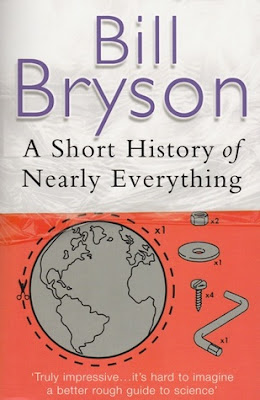Haruf, Kent "Plainsong" - 1999
The story of a father raising his teenager sons alone in a small town. Another farm is run by two unmarried brothers. And then there's a pregnant teenage girl. That's the set-up for this story that has been written in a wonderful way, the author manages to tell it as if it had happened to his own family, in his own community. Quite an emotional story with a lot of details. I really liked it.
There is a sequel, "Eventide", which is on my wishlist.
See more comments on my ThrowbackThursday post in 2025.
From the back cover:
"A heartstrong story of family and romance, tribulation and tenacity, set on the High Plains east of Denver.
In the small town of Holt, Colorado, a high school teacher is confronted with raising his two boys alone after their mother retreats first to the bedroom, then altogether. A teenage girl—her father long since disappeared, her mother unwilling to have her in the house—is pregnant, alone herself, with nowhere to go. And out in the country, two brothers, elderly bachelors, work the family homestead, the only world they've ever known.
From these unsettled lives emerges a vision of life, and of the town and landscape that bind them together - their fates somehow overcoming the powerful circumstances of place and station, their confusion, curiosity, dignity and humor intact and resonant. As the milieu widens to embrace fully four generations, Kent Haruf displays an emotional and aesthetic authority to rival the past masters of a classic American tradition.
Utterly true to the rhythms and patterns of life, Plainsong is a novel to care about, believe in, and learn from."
The story of a father raising his teenager sons alone in a small town. Another farm is run by two unmarried brothers. And then there's a pregnant teenage girl. That's the set-up for this story that has been written in a wonderful way, the author manages to tell it as if it had happened to his own family, in his own community. Quite an emotional story with a lot of details. I really liked it.
There is a sequel, "Eventide", which is on my wishlist.
See more comments on my ThrowbackThursday post in 2025.
From the back cover:
"A heartstrong story of family and romance, tribulation and tenacity, set on the High Plains east of Denver.
In the small town of Holt, Colorado, a high school teacher is confronted with raising his two boys alone after their mother retreats first to the bedroom, then altogether. A teenage girl—her father long since disappeared, her mother unwilling to have her in the house—is pregnant, alone herself, with nowhere to go. And out in the country, two brothers, elderly bachelors, work the family homestead, the only world they've ever known.
From these unsettled lives emerges a vision of life, and of the town and landscape that bind them together - their fates somehow overcoming the powerful circumstances of place and station, their confusion, curiosity, dignity and humor intact and resonant. As the milieu widens to embrace fully four generations, Kent Haruf displays an emotional and aesthetic authority to rival the past masters of a classic American tradition.
Utterly true to the rhythms and patterns of life, Plainsong is a novel to care about, believe in, and learn from."


















